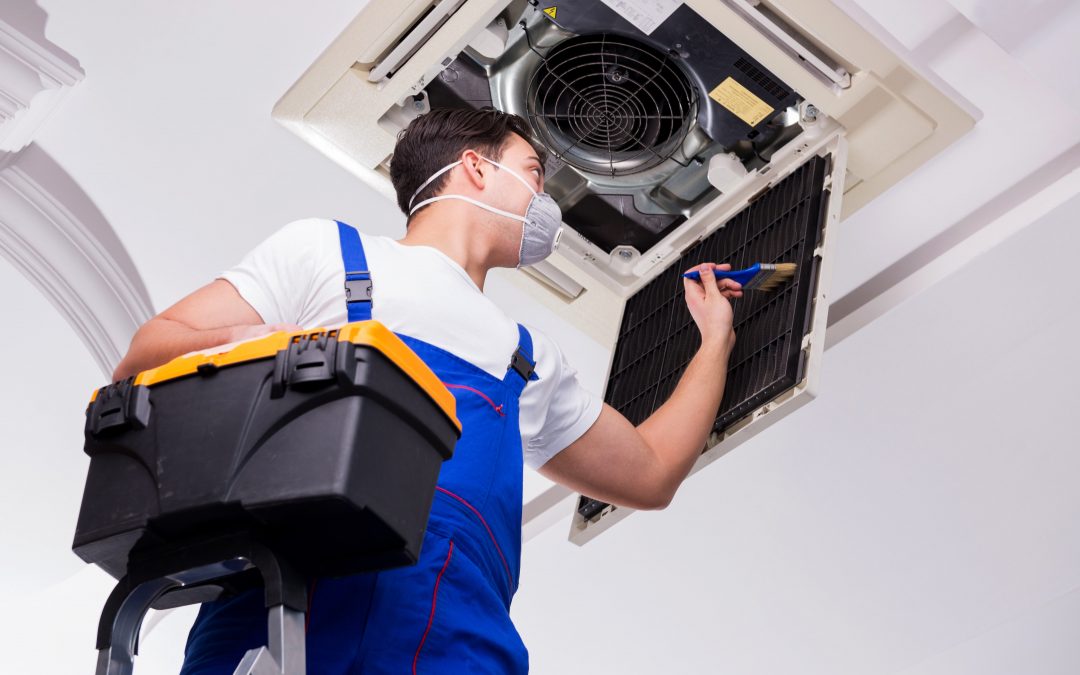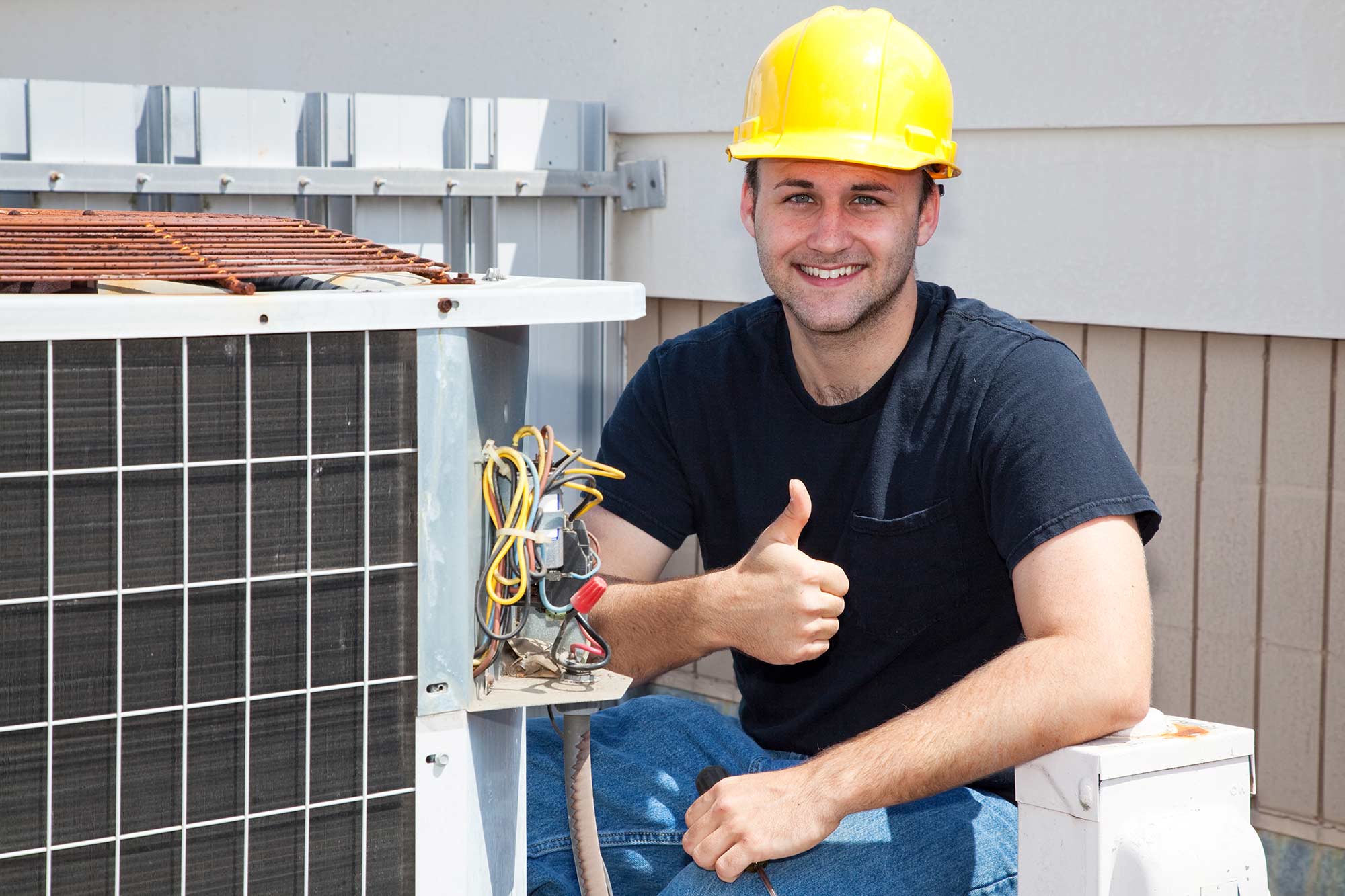The complete checklist to ac unit replacement for homeowners
Wiki Article
All Regarding A/c: Identifying Common Issues and Effective AC Repair Methods
HVAC systems are important for keeping interior convenience. Understanding their components and performance is vital for recognizing typical problems. Property owners usually deal with issues such as inadequate cooling, unusual smells, or increasing power prices. These indicators can suggest underlying concerns that might call for interest. Discovering do it yourself troubleshooting techniques can be valuable, however recognizing when to seek expert aid is similarly vital. What actions can be required to guarantee durable performance?Comprehending Your Cooling And Heating System: Elements and Performance
A HVAC system, often taken into consideration the foundation of indoor environment control, includes numerous essential components that interact to regulate temperature and air high quality. The main components include the heating device, ventilation system, and air conditioning device. The home heating system, normally a furnace or central heating boiler, produces warmth during colder months, while the cooling device cools down interior rooms during the summer season.
Typical Heating And Cooling Troubles Home Owners Experience
Home owners frequently face several common cooling and heating issues, including inconsistent temperature distribution throughout their home. In addition, uncommon sounds throughout procedure can show underlying problems that need attention. Resolving these worries quickly is crucial for keeping excellent system efficiency.Inconsistent Temperature Circulation
Lots of homes experience the frustrating issue of irregular temperature circulation, where specific rooms really feel uncomfortably cozy while others remain too cold. This trouble commonly occurs from a variety of variables, including inadequate insulation, blocked vents, or an improperly sized HVAC system. When air ducts are not adequately sealed or when furnishings obstructs airflow, some spaces might obtain insufficient air conditioning. Furthermore, thermostat positioning can considerably impact temperature level law; a thermostat located in a sunlit location might misrepresent the general temperature level of the house. Routine upkeep, including cleansing filters and making sure ductwork is clear, can help alleviate these inconsistencies. Homeowners may additionally take into consideration zoning systems to better control temperature levels throughout different locations of the home, promoting a much more comfy living environment.Uncommon Noises Throughout Operation
When a cooling and heating system operates, uncommon sounds can indicate underlying problems that call for attention. Homeowners may run into a series of noises, such as grinding, squealing, or hissing. Grinding sounds typically indicate worn-out bearings or elements, while squealing can recommend loosened belts or parts needing lubrication. Hissing may suggest a refrigerant leakage, which can endanger the system's efficiency. Furthermore, banging noises may aim to loosened ductwork or a concern with the blower follower. Each of these sounds acts as a caution, prompting property owners to examine additionally. Ignoring these signs can result in more considerable troubles and expensive repairs. Routine upkeep and punctual attention to uncommon noises can improve system longevity and performance, guaranteeing a comfortable living setting.Indicators That Indicate Your Air Conditioner Demands Repair
Just how can one inform if their cooling device needs repair service? Several signs might show underlying problems needing professional interest. If the AC falls short to cool down the space effectively, it might suggest a refrigerant leakage or compressor malfunction. Additionally, a boost in energy bills without matching usage changes can indicate inefficiency in the system. Property owners should additionally be sharp to unusual scents emanating from the unit, which can suggest mold and mildew growth or electric issues. If the A/c frequently cycles on and off, it may be a sign of a defective thermostat or various other mechanical troubles. The visibility of water pooling around the unit can suggest a clogged up drain line. Acknowledging these indications early can conserve money and time, making sure that the air conditioning system operates effectively and successfully.Do It Yourself Troubleshooting Techniques for Heating And Cooling Issues
When encountering HVAC problems, homeowners can use a number of do it yourself repairing techniques to determine the issue. Trick approaches include examining thermostat setups, evaluating air filters, and assessing water drainage concerns. These actions can assist determine usual breakdowns before seeking expert help.Examining Thermostat Setups
What actions should homeowners take to ensure their thermostat settings are proper? They should verify the thermostat is established to the desired temperature and mode, whether home heating or air conditioning. Inspecting for a clear screen and verifying the thermostat is not set to "hold" or "getaway" mode is vital. House owners must likewise confirm that the thermostat is level and installed in a location devoid of drafts, straight sunshine, or various other temperature influences. In addition, altering the thermostat can aid supply precise readings. If the thermostat operates batteries, changing them may resolve any concerns. By methodically assessing these aspects, house owners can typically determine and rectify thermostat-related problems, advertising excellent HVAC system performance.Inspecting Air Filters
Air filters play a vital role in maintaining ideal cooling and heating performance. They catch dirt, irritants, and other particles, making sure clean air blood circulation. Gradually, filters can become stopped up, decreasing airflow and effectiveness. To examine air filters, people ought to initially find the filter, typically found in the return duct or near the heating system. Once situated, they ought to review the filter's condition-- if it shows up filthy or blemished, it most likely needs substitute. Many filters call for changing every 1-3 months, depending upon use and environmental aspects. Regular assessment and timely substitute of air filters not just enhance air high quality but also extend the here life-span of HVAC systems, preventing prospective malfunctions and costly repair work.
Reviewing Water Drainage Issues
Just how can homeowners efficiently recognize and deal with drain concerns within their HVAC systems? They need to evaluate the condensate drainpipe line here for obstructions or clogs, which can lead to water buildup. House owners might make use of a wet/dry vacuum cleaner to get rid of any kind of particles blocking the line. Next off, examining the drainpipe frying pan for corrosion or leakages is essential, as a damaged pan can trigger water to overflow. Routine cleaning of the drain line with a mixture of vinegar and water assists stop future clogs. In addition, guaranteeing appropriate slope of the drainpipe line advertises reliable water flow. If these DIY strategies do not resolve the issue, speaking with an expert heating and cooling technician might be essential to prevent potential water damage and system failure.When to Call a Specialist for Air Conditioner Repair Services

While some a/c issues can be taken care of with do it yourself approaches, there are circumstances where calling a professional ends up being important. Homeowners must seek skilled support when they run into consistent problems, such as insufficient cooling, odd noises, or uncommon smells originating from the device. These signs might suggest much deeper problems that call for specialized knowledge and tools to detect and repair correctly.

Preventative Maintenance Tips for HVAC Long Life
Routine preventative upkeep can significantly boost the longevity of heating and cooling systems. Home owners ought to set up annual evaluations by certified professionals to evaluate system performance and determine possible issues. Routinely altering or cleansing air filters is important, as this assurances proper air flow and lowers strain on the system. On top of that, inspecting and securing ductwork prevents energy loss and enhances total performance.
It is likewise suggested to keep the outdoor system free from particles and vegetation, permitting peak air flow and warm exchange. Home owners should examine the condensate drainpipe for clogs to avoid water damage and mold development. Preserving ideal thermostat setups and making use of programmable alternatives can boost energy efficiency. Documenting maintenance tasks aids track solution background and can aid in recognizing persisting problems. By adhering to these preventative measures, individuals can take full advantage of the performance and life-span of their cooling and heating systems
Frequently Asked Inquiries
Exactly how Often Should I Change My Cooling And Heating System Filters?
A/c system filters need to typically be changed every one to 3 months, depending upon usage, filter kind, and environmental factors. Regular substitute helps keep effectiveness and air quality, making sure peak system efficiency throughout the year.What Dimension Heating And Cooling System Do I Required for My Home?
To identify the proper heating and cooling system dimension for a home, one must think about square video, insulation quality, and regional environment. Consulting a professional can assist assure maximum effectiveness and convenience for the specific living space.Are There Eco-Friendly Cooling And Heating Options Available?
Yes, environment-friendly HVAC more info choices are readily available, including energy-efficient heatpump, solar-powered systems, and geothermal heating. These options lower energy usage and ecological influence, promoting sustainability while maintaining efficient environment control for household and industrial areas.Just How Can I Improve My heating and cooling System's Energy Performance?
To enhance heating and cooling energy effectiveness, one can regularly maintain the system, seal air leaks, set up programmable thermostats, utilize energy-efficient filters, and assurance appropriate insulation throughout the home to minimize energy usage and boost efficiency.
What Is the Typical Life-span of an A/c System?
The average life expectancy of a heating and cooling system typically ranges from 15 to 25 years, relying on elements such as maintenance, use, and the high quality of installation. Routine maintenance can significantly expand its operational long life.Final thought
In recap, an extensive understanding of a/c systems empowers house owners to identify typical concerns and address minor troubles effectively. Identifying signs of breakdown, using DIY troubleshooting methods, and focusing on regular maintenance can boost system performance and effectiveness. Nonetheless, when confronted with intricate fixings, enlisting specialist assistance is crucial to guarantee safety and longevity. By fostering understanding and positive treatment, individuals can take pleasure in a comfortable indoor environment while reducing unforeseen prices linked with HVAC failings.Report this wiki page